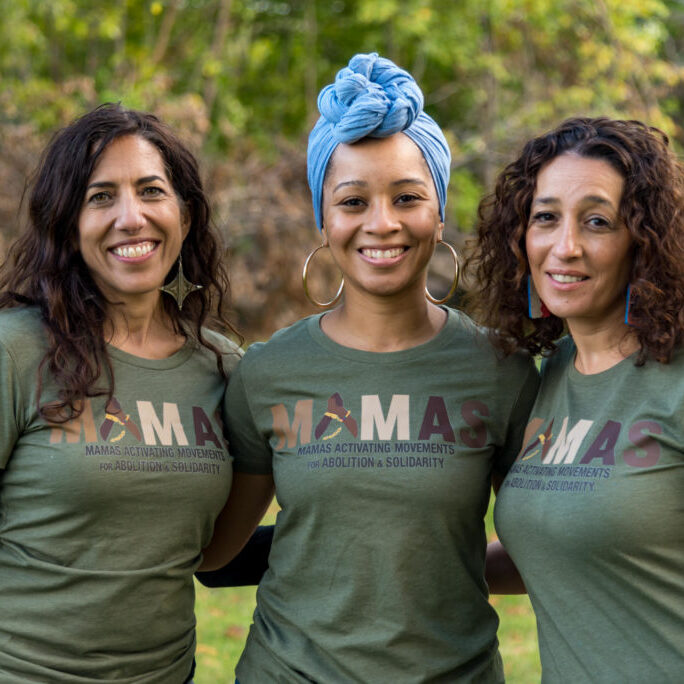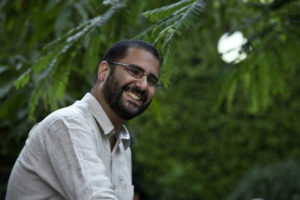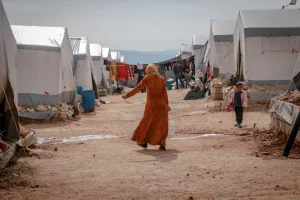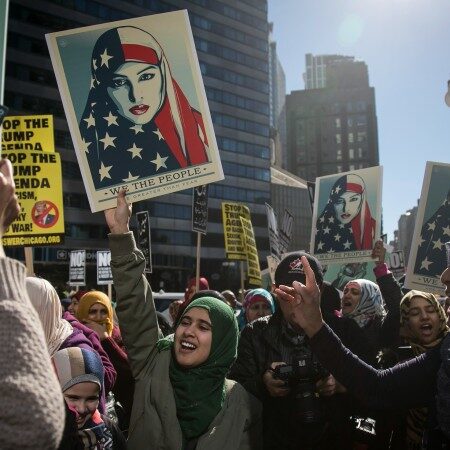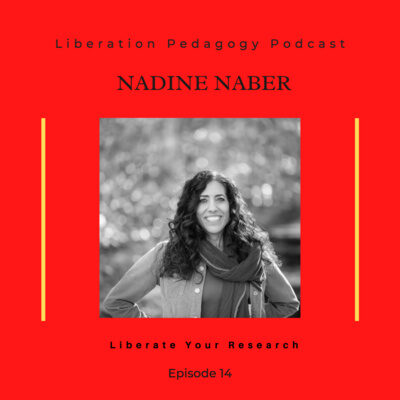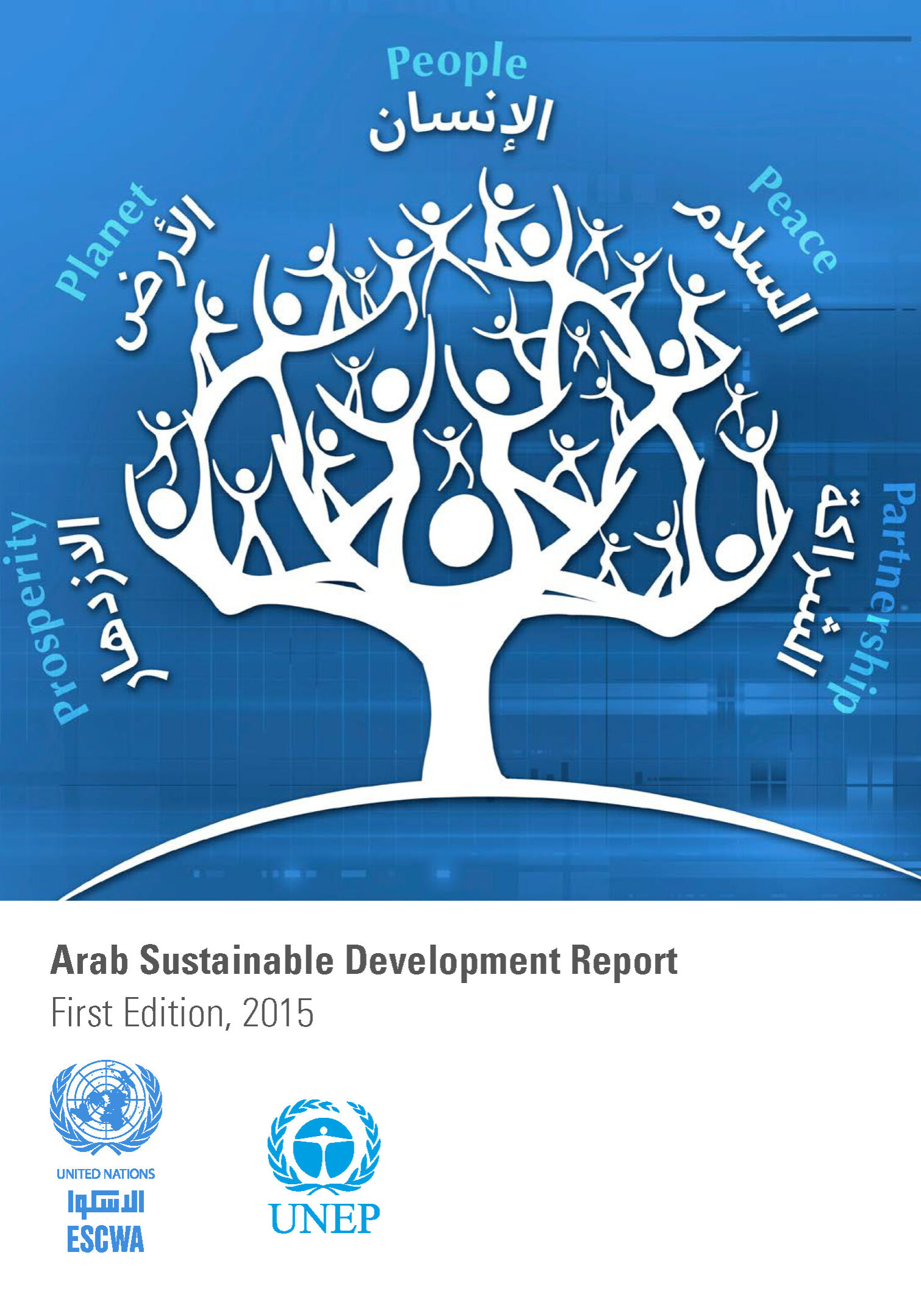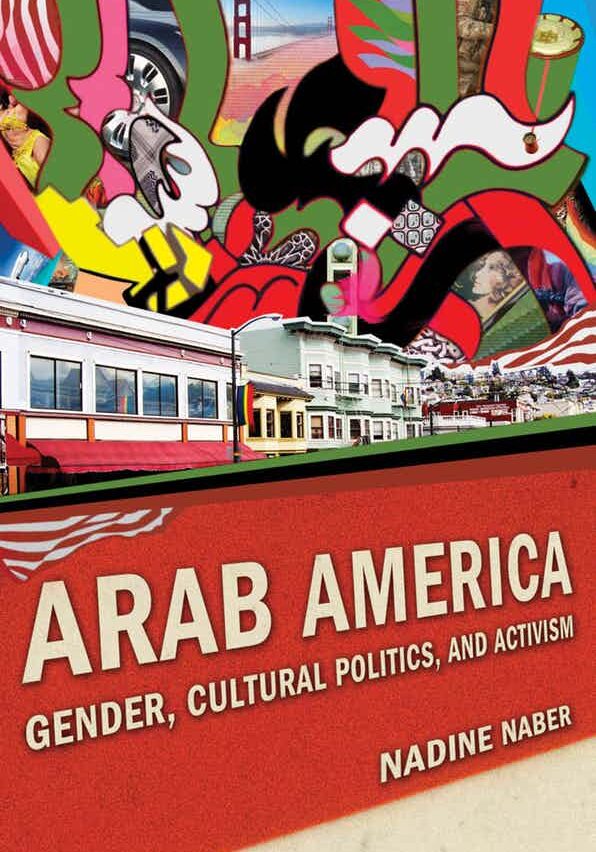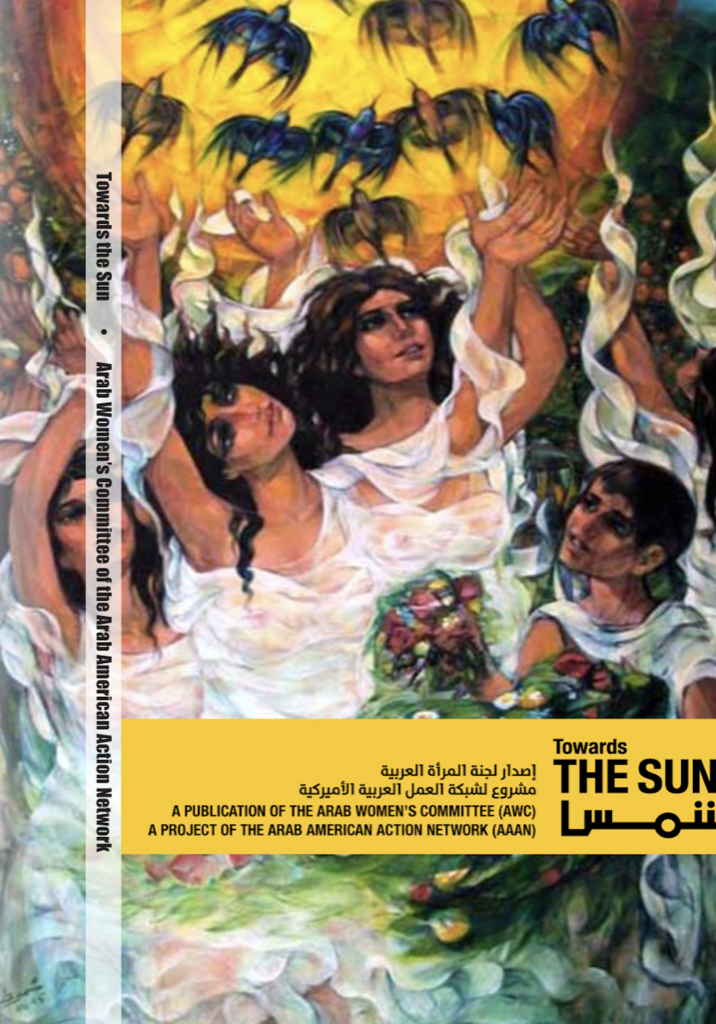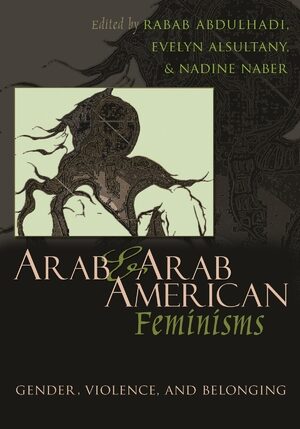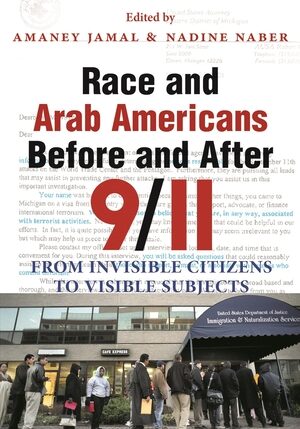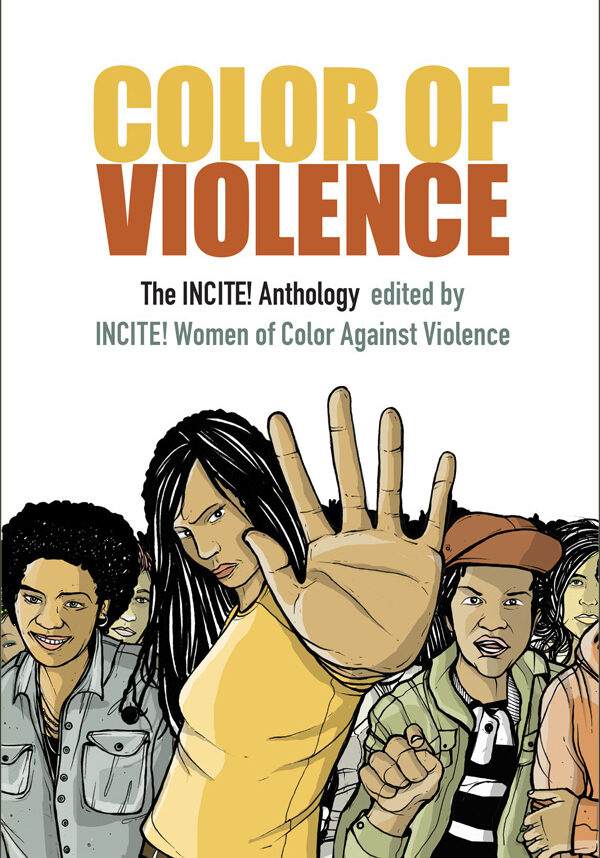About My Work
My life's work in 6-minutes
6-minute segment in the 2022 Spring YWomen Film, produced by Susan Hope Engel as part of the YWCA YWomen Leadership Celebration. Nadine Naber is a 2022 Recipient of the YWomen Leadership Award.
Systemic violence breaks us and our scholarship by forcing us to live and work within white supremacist, individualist, and exploitative environments.
My Mission
My journey to heal myself from systemic violence and academic oppression inspired me to integrate collective healing practices into efforts towards building thriving BIPOC communities, research, and social movements. When I realized I could take responsibility for the way I react to oppression, I became increasingly surrounded by abundant possibilities for living out my full purpose on this planet.
While I strive to align my emotions with my desire to live in harmony with who I am and our intergenerational and collective power, I aim to contribute to the abolition of oppressive systems and to expand our capacity for radical self love, collective healing and liberation. I do this through my Liberate Your Research workshops and my writing, public speaking, activism, and teaching on the topics of racial justice; gender justice; women and queer of color feminisms; Arab and Muslim feminisms; Arab Americans; Muslim Americans; and BIPOC-based activism and solidarity.
Press
I write regular OpEds and news articles for outlets like Truthout, Jacobin, and Jadaliyya. I am a leading voice for the Chicago Reporter, and I have been recognized as an exceptional leader by the OpEd project.
New UIC study examines experiences of Chicagoland Arab Americans
Originally aired on CBS News. A groundbreaking study out of […]
Read MoreCaregivers on the front lines of Chicago’s abolitionist movement
Originally published in Prism here. Ten parents (nine mothers and […]
Read MoreFrom Palestine to US Prisons, Radical Love Can Guide Our Fight for Liberation
Op-ed by Amira Jarmakani , Nadine Naber , Monica Ramsy originally published in Truthout here. […]
Read MoreOften overlooked, Chicago Arab Americans face widespread racism, groundbreaking report finds
Originally published on CBS Chicago here. CHICAGO (CBS) — Arab Americans […]
Read MoreMAMAS speak out on Roe v. Wade: ‘We need to couple the fight for Roe v. Wade with multiple fights at the same time’
Originally published by Darcel Rockett in Chicago Tribune here on […]
Read MoreAlaa Abd El-Fattah Is a Political Prisoner in Egypt. US Aid Is Funding His Jailers.
Originally published in TruthOut here, this article was written by […]
Read MoreLet’s Work for Global, Anti-Imperialist Reproductive Justice This Mother’s Day
Originally published in TruthOut here Across the United States this […]
Read MoreLet’s Stand with Afghan Refugee Women
Originally published in The Chicago Reporter here For 20 years, […]
Read MorePodcast & Radio
New study examines everyday life Chicago area Arab Americans
[March 3, 2021] A new study examines everyday life and challenges of Chicago area Arab Americans and explores why Arab Americans do not have a racial category of their own. The study from UIC looks at Arab Americans in the Chicago area. One finding is that many Arab Americans would like to be able to check something other than “white” on official forms. Join guest Nadine Nader on this segment.
Liberate Your Research
[March 3, 2021] This episode discusses Nadine Naber’s “Liberate Your Research” workshop which helps radical feminist scholars claim and name their/our core beliefs, while achieving writing and research prosperity and surviving and thriving in and beyond the academic industrial complex. The episode shares the theoretical, methodological, pedagogical, and political frameworks that inspired Nadine Naber to develop this workshop, which teaches radical thinkers how to align their research with their commitments to social transformation.
Beyond the Arab Muslim Ban: Feminist Futures and Joint Struggle
[April 19, 2017] The College of Liberal Arts and Social Sciences and The Arab-American Education Foundation Chair in Modern Arab History at the University of Houston held the Nijad and Zeina Fares Arab-American Educational Foundation Annual Distinguished Lecture in Modern Arab Studies on March 21, 2017, at the University of Houston. The lecture was titled "Beyond the Arab Muslim Ban: Feminist Futures and Joint Struggle", and the speaker was Professor Nadine Naber.
'White But Not Quite': A History of the Arabs in America
[Nov 12, 2015] Arabiyaat briefly explores the history of Arabs in America with guest Nadine Naber, author of “Arab America: Gender, Cultural Politics, and Activism.” The episode begins with reflections by Linda and Souraya followed by an interview with Dr. Nadine Naber. She puts this largely unknown history of the Arab migrants to America became an “invisible” community and how that invisibility has led to the ambiguous place Arabs hold in the US today.
Filipino Domestic Workers in Egypt and Israel
[March 23, 2014] The show will feature an interview with scholars Nadine Naber and Allan Punzalan Isaac on the situation of Filipino migrant domestic workers in Israel and Egypt. Nadine Naber is an Arab American feminist anthropologist who recently spent six months on research leave in Cairo where she engaged with Filipina domestic workers and nannies in the context of an elite sports club. Allan Isaac is a Filipino American literary and cultural critic who has recently been studying queer Filipino caregivers in Israel as cabaret performers as well as domestic health workers.
Women's Magazine: Labor Day Focus on Immigrant Women
[Sept 1, 2014] We talk with Professor Nadine Naber, author of Arab America: Gender, Cultural Politics and Activism, about the case against Chicago feminist community leader Rasmea Odeh. A torture survivor, Odeh now faces ten years in U.S. prison and loss of her citizenship because of her conviction by an Israeli military court 40 years ago. Then, author Sheila Bapat speaks about domestic worker organizing in the U.S. and the history of U.S. policy toward domestic labor.
Recorded Lectures (Samples)
AROC: Arab Resource & Organizing Center
[March 12, 2021] Nadine Naber, Professor of Gender and Women’s Studies and Global Asian Studies at the University of Illinois at Chicago, speaks on Arab American Studies, Palestine, and the relationship with Asian American Studies, Ethnic Studies, and cross-movement building.
For more information, including booking details, visit my speaking page.
Books and Book-Length Reports

Pedagogies of the Radical Mother: Chicagoland’s Mother-Activists on Policing, Immigration, and War.
Naber, Nadine. Pedagogies of the Radical Mother: Chicagoland’s Mother-Activists on Policing, Immigration, and War. Under Contract, Haymarket Press, Chicago.
The Paradox of Social Development: Expert Report on the Social Pillars of Sustainable Development
Naber, Nadine. The Paradox of Social Development: Expert Report on the Social Pillars of Sustainable Development. United Nations Economic and Social Commission for Western Asia (UN ESCWA). April (2015): 1-42.
Arab America: Gender, Cultural Politics, and Activism
Naber, Nadine. Arab America: Gender, Cultural Politics, and Activism. New York, NY: New York University Press, 2012.
Co-edited Books
Towards the Sun
Co-edited with the Arab American Action Network in Chicago, with Nadine Naber, Towards the Sun. Washington, DC: Tadween Publishing, A subsidiary of the Arab Studies Institute, 2018.
Arab & Arab American Feminisms: Gender, Violence, & Belonging
Abdulhadi, Rabab, Evelyn Alsultany, and Nadine Naber, eds. Arab & Arab American Feminisms: Gender, Violence, & Belonging. Syracuse, NY: Syracuse University Press, 2010.
Race and Arab Americans before and after 9/11: From Invisible Citizens to Visible Subjects
Jamal, Amaney A, and Nadine Naber, eds. Race and Arab Americans before and after 9/11: From Invisible Citizens to Visible Subjects. Syracuse, NY: Syracuse University Press, 2007.
The Color of Violence
INCITE! Women of Color Against Violence with Nadine Naber, co-editor. The Color of Violence. New York, NY: South End Press, 2007.
Reprinted by Duke University Press, 2016.
Journal Articles
Naber, Nadine, and Clarissa Rojas. “Genocide and ‘U.S.’ Domination ≠ Liberation, Only We Can Liberate Ourselves: Toward an Anti-Imperialist Abolitionist Feminism.” Forthcoming, in a collection of abolition feminisms co-edited by Abolition Collective, Alisa Bierria, Jakeya Caruthers, and Brooke Lober. Haymarket Press.
Naber, Nadine, Johnáe Strong, and Souzan Naser. “Radical Mothering for the Purpose of Abolition.” Forthcoming, in a collection of abolition feminisms co-edited by Abolition Collective, Alisa Bierria, Jakeya Caruthers, and Brooke Lober. Haymarket Press.
Naber, Nadine. Epilogue, special issue on Transnational Feminist Approaches to Anti-Muslim Racism. Forthcoming. Meridians: Feminism, Race, Transnationalism.
Naber, Nadine. “The Radical Potential of Mothering during the Egyptian Revolution.” Feminist Studies 47, no. 1 (2021): 62-93.
Kaedbey, Deema, and Nadine Naber. “Reflections on Feminist Interventions within the 2015 Anticorruption Protests in Lebanon.” Meridians: Feminism, Race, Transnationalism 18, no. 2 (2019): 457-470.
Naber, Nadine. “‘The U.S. and Israel Make the Connections for Us’: Anti-Imperialism and Black-Palestinian Solidarity.” Critical Ethnic Studies Journal 3, no. 2 (2017): 15-30.
Naber, Nadine and Dalia Abdelhameed. “Attacks on Feminists in Egypt: The Militarization of Public Space and Accountable Solidarity.” Feminist Studies 42, no. 2 (2016): 520-527.
Naber, Nadine. "Arab and Black Feminisms. Joint Struggle and anti-Imperialist Activism." In Departures in Qualitative Research5, no. 3 (2016): 116-125.
Naber, Nadine and Atef Said. The Cry for Human Rights: Violence, Transition, and the Egyptian Revolution.” Humanity 7, no. 1 (2016): 71-90.
Naber, Nadine. “Imperial Whiteness and the Diasporas of Empire.” American Quarterly 66, no. 4 (2014): 1107-1115.
Naber, Nadine and Zeina Zaatari. “Reframing the War on Terror: Feminist and Lesbian, Gay, Bisexual, Transgender and Queer activism in the 2006 Israeli Invasion of Lebanon.” Cultural Dynamics 26, no. 1 (2014): 91-111.
Naber, Nadine. “Sondra Hale’s Ethnographic Accountability.” Journal of Middle East Women’s Studies 10, no. 1 (2013): 128-132.
Naber, Nadine. “Transnational Families Under Siege: Lebanese in Dearborn, Michigan, and the 2006 War on Lebanon.” Journal of Middle East Women’s Studies 5, no. 3 (2009): 145-174.
Naber, Nadine. “The Rules of Forced Engagement: Race, Gender, and the Culture of Fear among Arab Immigrants in San Francisco Post-9/11.” Journal of Cultural Dynamics 18, no. 3 (2006): 235-267.
Naber, Nadine. “Arab American Femininities: Beyond Arab Virgin/American(ized) Whore.” Journal of Feminist Studies 32 no. 1 (2005): 87-111.
Reprinted in Sex, Gender, and Sexuality, 118-125. Edited by Abby Ferber, Kimberly Holcomb, and Tre Wentling. New York, NY: Oxford University Press, 2005.
Reprinted in Doing Gender Diversity: Reading in Theory and Real-World Experience, 245-262. Edited by Rebecca Plante and Lis Maurer. Boulder, CO: Westview Press. 2009.
Naber, Nadine. “Muslim First-Arab Second: A Strategic Politics of Race and Gender.” The Muslim World 95, no. 4 (2005): 479-496.
Blackwell, Maylei and Nadine Naber. “Intersectionality in an Era of Globalization: The Impact of the World Conference Against Racism on Transnational Feminist Practice (Report).” Meridians: A Journal: Feminism, Race, Transnationalism, 2 no. 2 (2003): 237-248.
Translated and printed as “Encontrando os feminismos latinoamericanos e caribenhos.” Revista Estudos Feministas 11 no. 2 (July-December 2002): 541-575.
Naber, Nadine. “Raise Up Your Voices So That We Can Hear You: Arab and Arab American Transnational Feminist Practices.” Tiyba: A Theoretical Feminist Journal. January (2003): 33-54.
Translated into Arabic: Ausrukhna kay narakun: Hawla al-mumarasat alnasawiya al-arabiya wal-arabiya al amriykiya muta’adedat al-qawmiya.
Naber, Nadine. “So Our History Doesn't Become Your Future: The Local and Global Politics of Coalition Building Post September 11th.” Journal of Asian American Studies 5, no. 3 (2002): 217-242.
Naber, Nadine. “Ambiguous Insiders: An Investigation of Arab American Invisibility.” Ethnic and Racial Studies 23, no. 1 (2000): 37-61.
Book Chapters
Naber, Nadine. “The Labor Strikes That Catalyzed the Revolution in Egypt.” In Women Rising, 28-39. Edited by Mounira Charrad and Rita Stephan. New York, NY: New York University Press, 2020.
Naber, Nadine. “Acculturation Paradigms to Feminist Intersectionality Paradigms in Arab American Families.” In Arab Family Studies: Critical Reviews, 369-386. Edited by Suad Joseph. Syracuse: Syracuse University Press, 2018.
Naber, Nadine. “Diasporas of Empire: Arab Americans and the Gendered Reverberations of War.” In At the Limits of Justice” Women of Colour on Terror, 191-214. Edited by Suvendrini Perera and Sherene Razack. Buffalo, NY: University of Toronto Press, 2014.
Naber, Nadine. “What the Egyptian Revolution Informs Us about Gender and Women’s
Liberation.” Published in Arabic in the book, The Revolutions of Arab Dignity: Ideas beyond Neoliberalism. Cairo: Arab Forum for Alternatives, 2013.
Naber, Nadine and Matthew Stiffler. “Maronite Catholics, Orthodox Christians, and Sunni Muslims from the Arab Region: Between Empire, Racialization, and Assimilation.” In Mis-Reading America: Scriptures and Difference, 208-272. Edited by Vincent Wimbush. New York, NY: Oxford University Press, 2013.
Abdulhadi, Rabab, Evelyn Alsultany, and Nadine Naber. “Arab and Arab American Feminisms: An Introduction.” In Arab and Arab American Feminism, 1-35. Edited by Rabab Abdulhadi, Evelyn Alsultany, and Nadine Naber. Syracuse: Syracuse University Press, 2010.
Naber, Nadine. “Beyond Orientalist and Anti-Orientalist Feminisms.” In Arab and Arab American Feminisms, 175-215. Edited by Rabab Abdulhadi, Evelyn Alsultany, and Nadine Naber. Syracuse: Syracuse University Press, 2010.
Naber, Nadine. “Arab Americans and U.S. Racial Formations.” In Race and Arab Americans before and after September 11th, 1-45. Edited by Amaney Jamal and Nadine Naber. Syracuse, NY: Syracuse University Press, 2007.
Naber, Nadine. “Look, Mohammed the Terrorist is Coming: Cultural Based Racism, Nation Based Racism and the Intersectionality of Oppressions after 9/11.” In Race and Arab Americans before and after September 11th, 276-304. Edited by Amaney Jamal and Nadine Naber. Syracuse, NY: Syracuse University Press, 2007.

